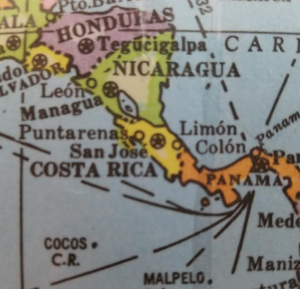NewsDesk @bactiman63
The Costa Rica Ministry of Health, with the support of the Pan American Health Organization (PAHO/WHO), presented the update of the National Integrated Management Strategy for the Prevention and Control of Arboviral Diseases, as part of the actions in the fight against dengue, zika and chikungunya in the country.

The purpose of this strategy is to contribute to the reduction of diseases caused by the Aedes aegypti mosquito, a goal that is in accordance with the Sustainable Development Goals.
The strategy was presented by Dr. Rodrigo Marín, director of the Surveillance Directorate of the Ministry of Health, to the nine regional directors, heads of rectory units and technical management teams, all from the Ministry of Health.
The socialization activity provided information regarding the components of management, epidemiology, patient care, laboratory, integrated vector management, environment, and the cross-cutting axis of communication and planning.
Through June 25 this year, Costa Rica has reported a total of 2,712 cases of dengue, with the Huetar Caribe region being the most affected with a total of 1,120, followed by the Central Pacific with 476 cases and the Central North with 463.
During the same period, a total of 23 cases of chikungunya and six cases of zika were recorded.
In 2023, the Ministry of Health has visited more than 300,000 houses, fumigated more than 300,000 houses, more than 10,000 vacant lots and 1,489,151 deposits have been treated. Likewise, within the main deposits where dengue mosquitoes breed are tires, tanks, buckets, animal drinkers, potted dishes and canoes.
Subscribe to Outbreak News TV on YouTube

Image/CDC
The Ministry of Health, with the support of the Costa Rican Tourism Institute and members of the tourism sector, promote a series of strategies to prevent the spread of dengue and call for a country alliance to combat it, as well as to raise awareness that in this holiday period of half a year, in which we must protect ourselves from the mosquito that causes dengue disease
The dengue virus is transmitted to people through the bite of the Aedes aegypti mosquito , this disease affects people of all ages and the average incubation period is seven days. Among the most common symptoms we can find fever, malaise, muscle and/or joint pain, in the same way, the alarm signs of a case of dengue can include abdominal pain and vomiting.
In case of presenting any of the symptoms, it is important that they go to a health service and not self-medicate.
- Philippines: Malaria cluster reported in Puerto Princesa
- Laos dengue tally tops 11,000
- Bangladesh: Dengue death toll tops 100 as one day case record reported
- Colombia: Dengue outbreak prompts interventions
- London: Dire warning concerning measles
- Nigeria reports 160 confirmed diphtheria cases in June 2023
- Dengue cases skyrocketing in Bangladesh
- Netherlands: Legionnaires’ disease affects 13, kills two
- Dallas County resident is Texas’ first West Nile virus case of 2023

